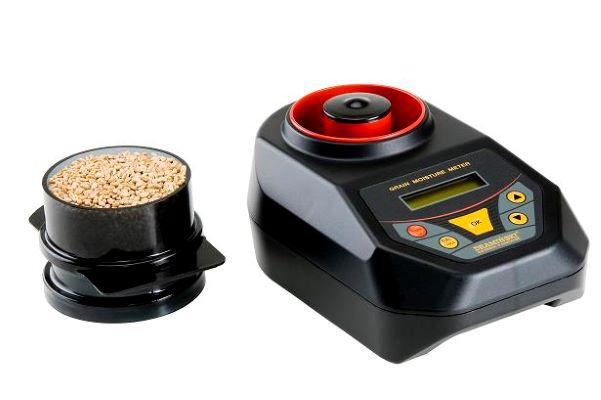Uganda grain farmers are benefiting from moisture meters which measure the moisture content in harvested cereals enabling the growers take steps to dry their grains properly further preventing post-harvest losses and taming aflatoxin poisoning in the stable crops.
Introduced by Agribusiness Initiative Trust (ABi Trust), the organization at the helm of the quality cereals campaign in the country, the meters help growers take necessary measures to prevent aflatoxin mold contamination that occurs in stored grain that destroys up to 40 per cent of East Africa’s annual grain production and is responsible for hundreds of deaths from unsuspecting people after eating highly contaminated maize.
The meters at pilot phase are aimed at improving quality among the harvest targets to impact over 10,000 cereal farmers in Uganda.
According to Svend Kaare Jensen, CEO at ABi Trust, the move is part of a wider plan to promote quality assurance in priority cereal value chains. The ten moisture meters were given to pilot Farmer Organisations from ten districts including Iganga, Jinja, Kyankwanzi, Isingiro, Kiboga, Kamwenge, Mubende, Mayuge, Lira, and Oyam.
The organization’s efforts come at a time when most farmers are losing out due to poor quality produce mainly due to poor methods of post-harvest handling. “By giving out this equipment to the farmer group organisation, we are trying to roll out a quality assurance system in agribusiness value chains,” Jensen told representatives of Farmer Organisations while handing over the moisture meters to them.
Better prices
The moisture meters measure the moisture level in the grains harvested by the farmers in the groups and will help them observe quality trends in order to command better prices in the markets.
The handover of the moisture meters followed the distribution of grain drying equipment to farmer-beneficiaries in 41 districts through 48 Farmer organisations to ensure proper drying of their harvest and ultimately reduce post-harvest losses.
High moisture content affects the quality and subsequently the final market value of cereals. Moisture content is universally used as a price determinant at the various stages of the value chain.
Moses Kiirya a cereal trader in Mukono hailed the move noting that it will help reduce poor quality and also enhance better relationships with most farmers from whom he sources the cereals. According to him, most farmers lack knowledge on how to ensure the quality of their produce.
“In the past, farmers were impatient and harvested maize before it was ready. But after sensitization from organizations like ABi Trust, farmers have learnt that post-harvest handling impacts on the final price of the produce and therefore have to be more careful. For instance, farmers now know that drying maize on the ground directly results in poor quality as opposed to drying maize on the tarpaulin.”
He also added that they in order to ensure quality purchase from the farmers, he already purchased his own moisture meter which determines the payout to farmers.
Improved drying technology
Farmer Organisations were selected to pilot and demonstrate use of improved drying technology and in addition capacitated them on the use of equipment for quality assurance. The move is intended to ensure that farmers appreciate and understand the value of having good-quality grain. “We intend to link up with many partners to extend this technology to the farmers,” said Jensen.
The support for standards compliance strengthens the competitiveness of Uganda’s Agricultural products through adherence to both Regional and International standards. Although this is a costly venture, Jensen noted that aBi Trust will continue building local capacities to be able to comply to these standards through similar efforts.








